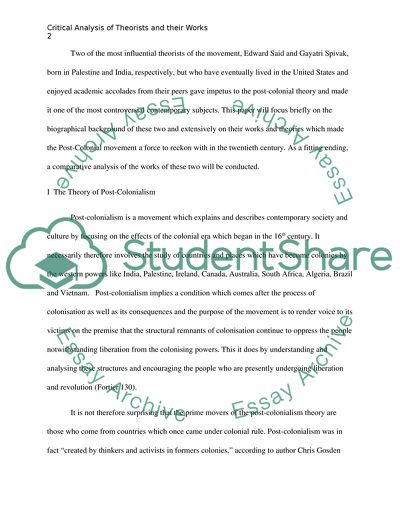Cite this document
(Evaluation of Post-colonialism Theorists Assignment, n.d.)
Evaluation of Post-colonialism Theorists Assignment. Retrieved from https://studentshare.org/history/1722283-assesed-analytical-evaluation
Evaluation of Post-colonialism Theorists Assignment. Retrieved from https://studentshare.org/history/1722283-assesed-analytical-evaluation
(Evaluation of Post-Colonialism Theorists Assignment)
Evaluation of Post-Colonialism Theorists Assignment. https://studentshare.org/history/1722283-assesed-analytical-evaluation.
Evaluation of Post-Colonialism Theorists Assignment. https://studentshare.org/history/1722283-assesed-analytical-evaluation.
“Evaluation of Post-Colonialism Theorists Assignment”, n.d. https://studentshare.org/history/1722283-assesed-analytical-evaluation.


